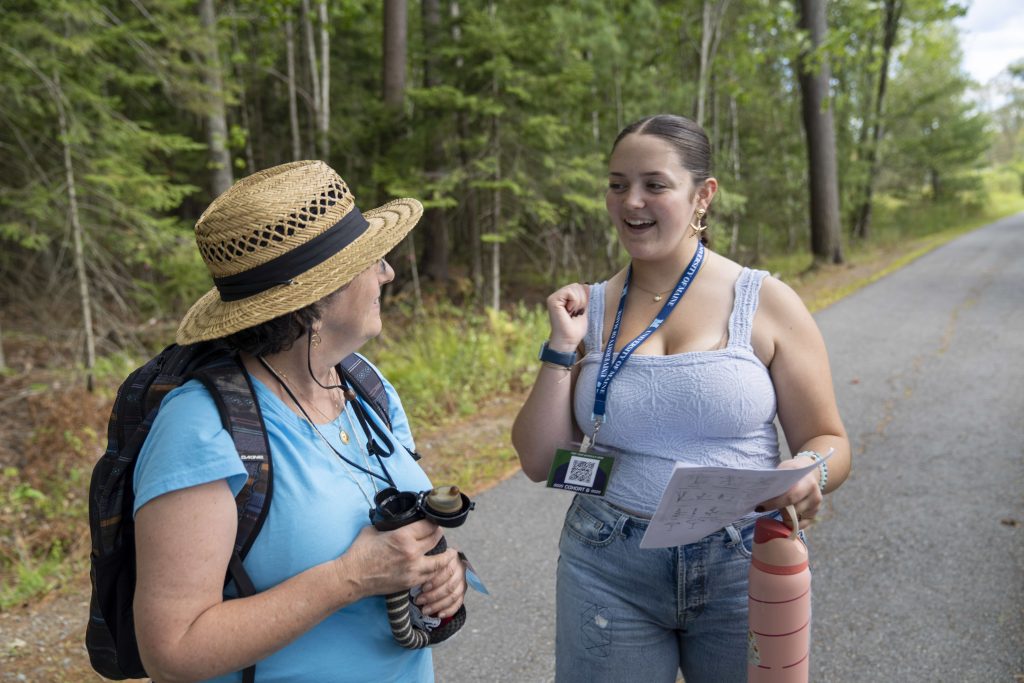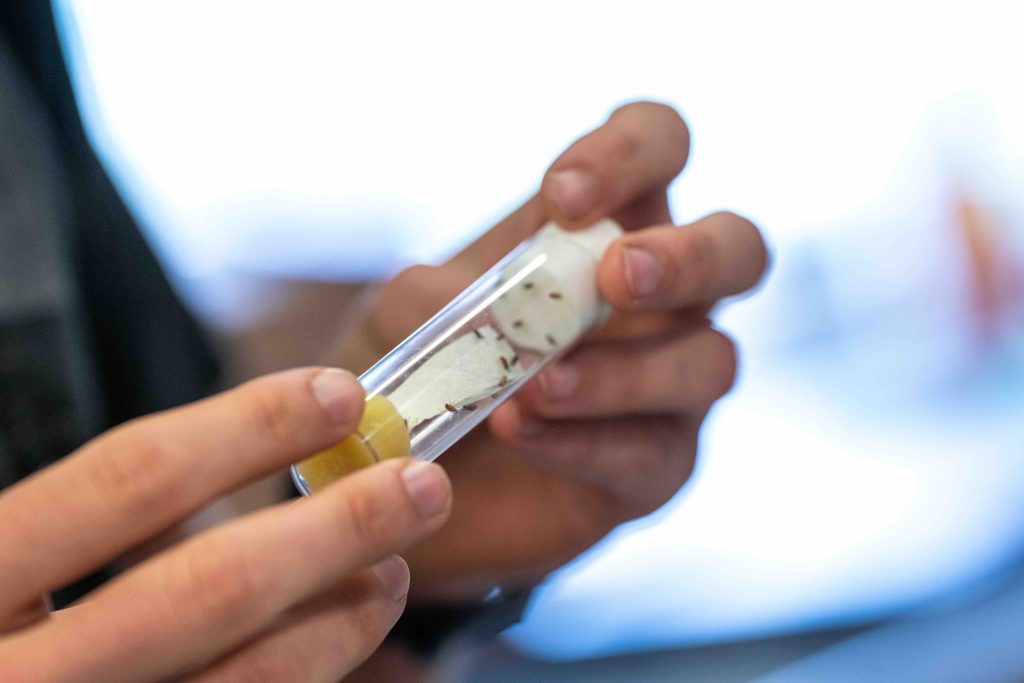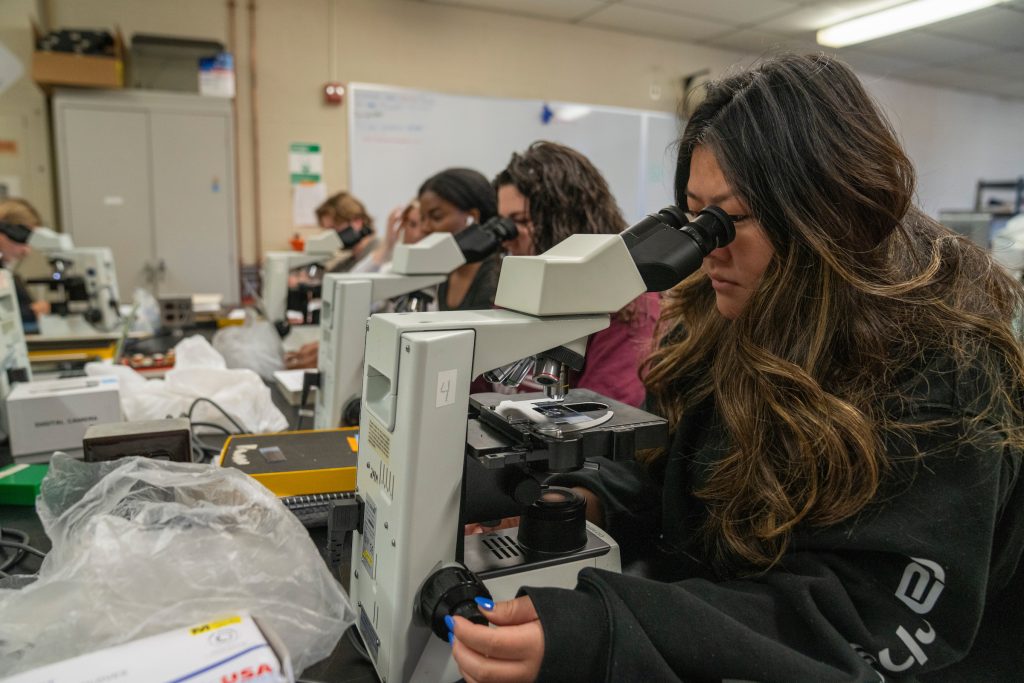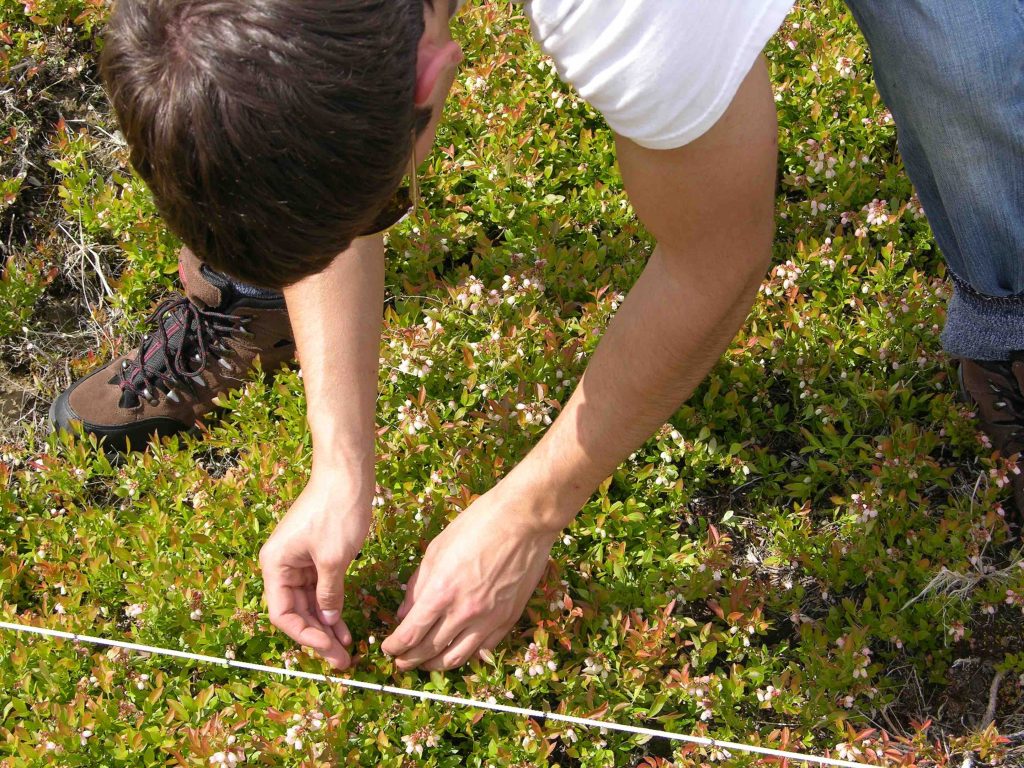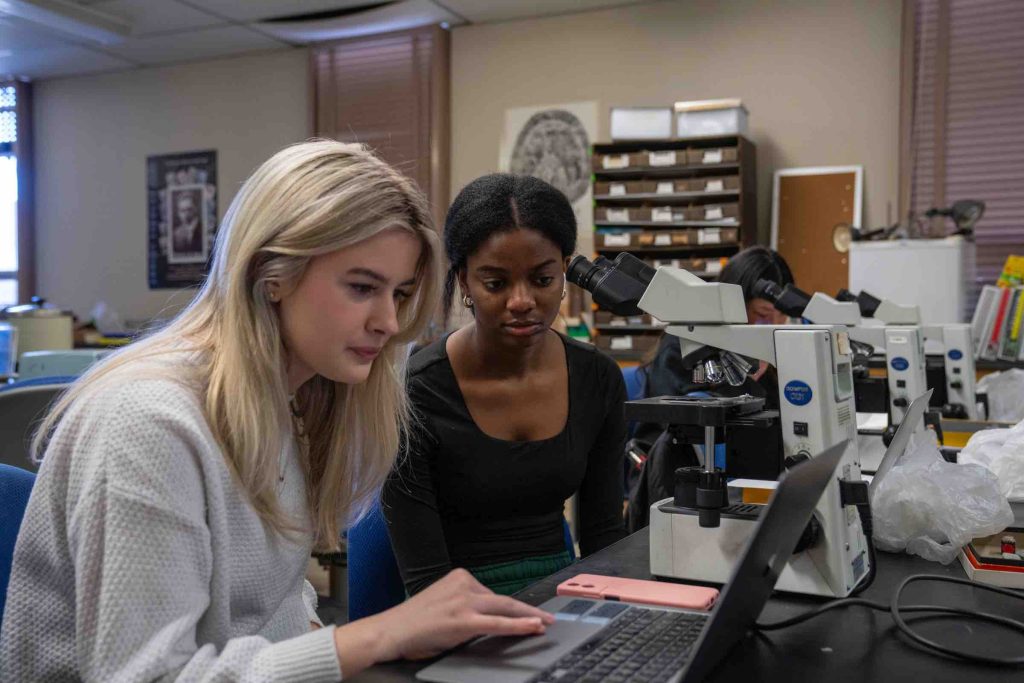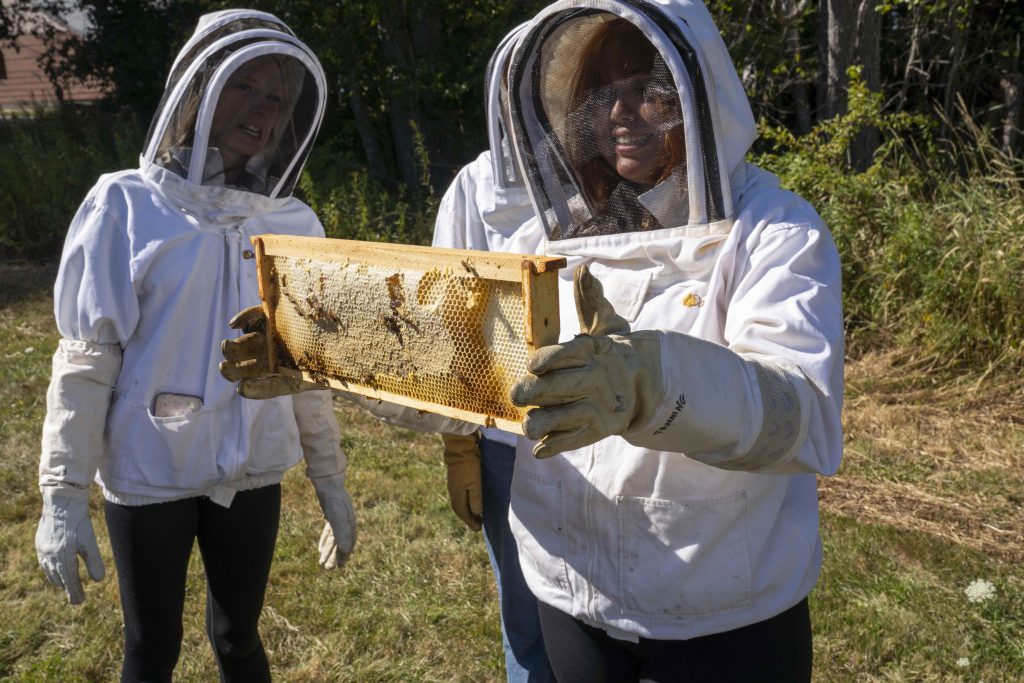Welcome to the School of Biology and Ecology at the University of Maine! We offer an exciting diversity of degree programs for our students. Undergraduate programs include options emphasizing biology, the health professions, ecology, zoology and botany. Courses are taught by faculty who are highly dedicated to education, some of whom are recipients of teaching awards at the college, university, and national levels. Incoming first-year students participate in the “From Ocean to Orono” experience, which is a fun hands-on orientation program held at Schoodic Point of Acadia National Park on the beautiful coast of Maine. This program introduces students to our programs, faculty, and each other. After that introduction, students proceed to explore the array of classroom, laboratory, and field experiences that prepare them for a wide variety of rewarding careers.
Undergraduates at the School of Biology and Ecology pursue a wide variety of careers, in both basic and applied aspects of biology that range from cellular biology to ecology. A significant proportion of students plan to enter the health care field. The department provides a major academic home for students wishing to pursue pre-med and other health profession careers, and offers a concentration in Pre-Medical Studies. The concentration in Pre-Medical Studies offers guidance to students preparing for a career in medicine or in any other health profession. Many of our students are interested in research careers with animals, plants, and fungi, careers in agriculture, and careers related to the environment. The School of Biology and Ecology recognizes the significance of a solid foundation in organismal biology integrated with an understanding of ecology and evolutionary principles in meeting today’s environmental and human health issues, and to meet this demand, SBE offers exceptional undergraduate degree programs in Biology, Zoology, and Botany. The coursework required of each program is rigorous and spans the sub-disciplines of biology and ecology, including the basic principles of structure and function, physiology, genetics, and development. A key feature of these degree programs is the wide choice of courses to meet each of the required areas, allowing students a degree of freedom to design their degrees to reflect and engage their particular interests. SBE provides high quality basic introductory biology service courses (i.e. BIO 100, BIO 200, BIO 122, and BIO 208) for the biologically based disciplines within the College of Earth, Life, and Health Sciences, the nursing program, and the University community as a whole. Additionally, students interested in ecology may select an Ecology concentration within the School of Biology and Ecology. Students in Biology, Botany, or Zoology can choose Entomology as a concentration.
EXPLORE OUR DEGREES
Research Opportunities
Students can get great research experience while in the undergraduate program. The Biology and Ecology faculty provide opportunities for students to conduct research in laboratory and field settings through courses such as BIO 387/388 (Undergraduate Research in Biology) and HON 490 (Honors Thesis). Independent-research opportunities also exist within certain upper-level courses. All of these research experiences can be used for credit toward the Capstone Experience, which is one of the General Education Requirements.
Literature-based research, in the form of an independent-reading project under the direction of a faculty member, is also possible and can also satisfy the requirement for a Capstone Experience. This can be done through BIO 391/392 (Independent Study in Biology).
There are also research employment opportunities such as student lab and field assistants. Students who do undergraduate research often develop useful skills, get ideas about careers, and have something significant to add to their resumes.
Faculty in SBE advertise opportunities for student research on the CUGR site (Center for Undergraduate Research), through Student Employment, and job postings. Students who have an interest in the topics of a class they may have had with a faculty member are encouraged to contact them to explore possibilities. Interest in research projects that faculty describe in their web pages may lead to opportunities for student research. Faculty are willing to discuss these opportunities.
opportunities for sbe majors
biology from the ocean to orono
The “From the Ocean to Orono” is part of the School of Biology and Ecology orientation and a research learning experience (RLE) that helps you explore different aspects of biological sciences. All first-year students in Biology, Botany, and Zoology majors participate in the week-before-semester event, which is split evenly between activities on campus in Orono and at the Schoodic Institute, part of Acadia National Park, located on the Maine coast. Students then continue their RLE in the fall semester ELH 117 course, where they will conduct research with an SBE faculty member throughout the semester. This course also introduces you to your major and lets you know about important campus resources available to support you.

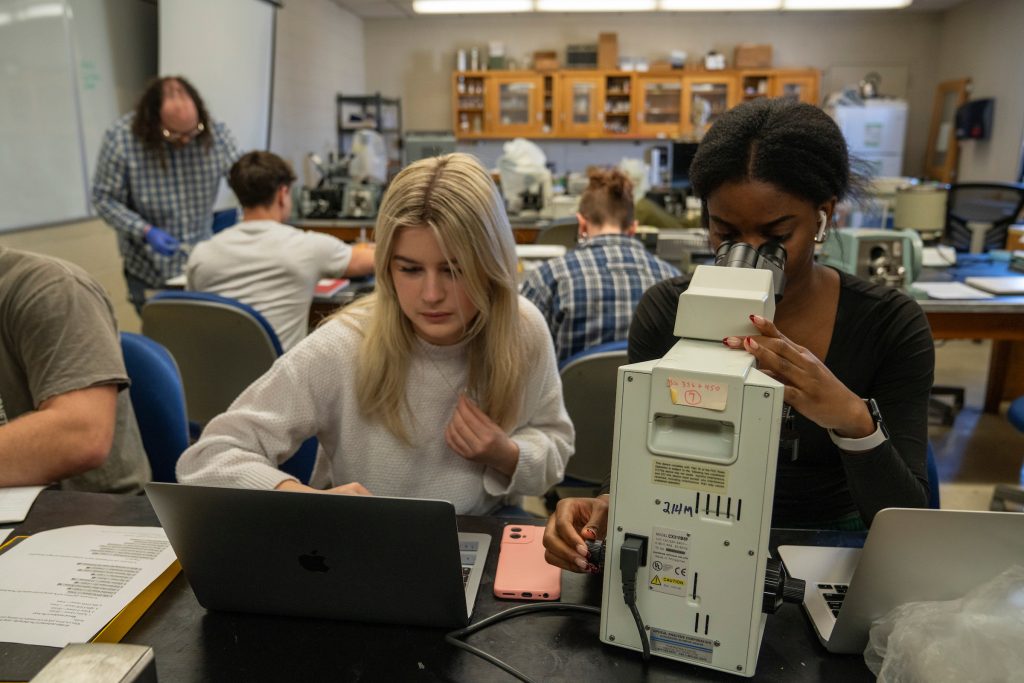
Adventure semester in costa rica
SBE Adventure Semester in Costa Rica is an optional study abroad opportunity for SBE majors.
Costa Rica supports diverse ecosystems and microclimates and some of the greatest biodiversity in the world. The nation has invested substantially in restoration of its forest and preservation of its natural areas. It’s a fabulous place to study tropical ecology and conservation.


